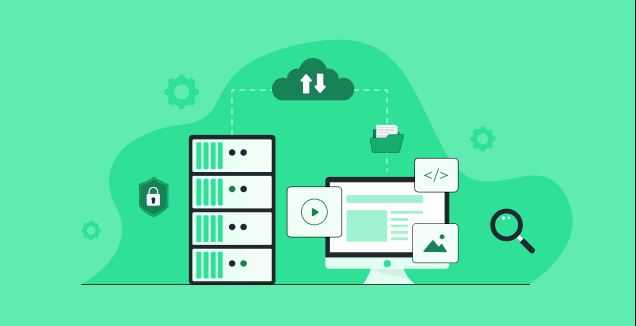Virtual Data Rooms: The Key to Streamlining Your Legal Processes

Choosing the appropriate technology for a legal team can be challenging, especially with the constant influx of new solutions. To simplify things, we have selected the software that combines everything the industry needs: a virtual data room. It provides robust data security, task automation, thorough analytics, and effective collaboration.
Find out more about the product in our post and see whether this is what you need.
What is a virtual data room for legal processes?
A virtual data room is a highly secure cloud solution for data protection, document management, and collaboration. It is widely used by law firms, lawyers, legal advisors, and other professionals from the industry. In particular, virtual data room services are employed for M&A, due diligence, board communications, litigation processes, restructuring, corporate minute book management, and everyday workflows.
To provide insight into online data room capabilities in the current industry landscape, we’ve described them for law professionals through the prism of trends expected in the coming year.
Learn more: Check iDeals to see what the best solutions for legal firms offer.
Top five legal tech trends for 2024
Legal technology is increasingly automating processes and improving the delivery of legal services. As a result, some trends are emerging. Here, we describe the main ones that legal teams are expected to face in 2024, as outlined by experts. Also, we will tell you how data room software can be helpful to those who want to be on top.
1. AI and machine learning
AI and machine learning are essential for in-house lawyers handling large contracts and complex legal matters. By 2024, these technologies will be integral to legal research, contract review, and drafting of documents.
As major players like OpenAI, Google, and Microsoft continue to improve their Large Language Models (LLMs), legal teams will benefit from more opportunities and increased efficiency in 2024.
✅ How data rooms help:
- Extract relevant information from contracts, helping legal teams streamline the review process and identify key clauses and obligations
- Analyze large sets of legal documents, identifying patterns, anomalies, and potential risks during due diligence processes
- Assist in due diligence processes, helping legal professionals quickly identify and assess critical information within a secure virtual data room
- Categorize large datasets efficiently
2. Legal design
Legal design improves the accessibility of legal services and products through human-centered design principles and methods. With it, lawyers can communicate with their clients more effectively, create easier-to-use documents, and solve legal problems. Thus, teams increasingly use legal design to enhance their services for their business units and internal stakeholders. It may include redesigning contracts, simplifying templates, and using interactive playbooks.
✅ How data rooms help:
- Contribute to a positive user experience when accessing and managing documents thanks to a highly intuitive interface
- Ensure that all relevant information is organized and easily accessible
- Enhance the collaborative aspects of legal design, allowing team members to work together efficiently on document creation and improvement
- Refine legal design elements based on user behavior and preferences
3. Legal analytics
Companies’ legal teams can use metrics and analytics to anticipate issues before they happen. These metrics can predict contract risks, compliance breaches, and litigation outcomes, which helps companies plan and manage risk more effectively. By regularly reviewing these insights, legal teams can continuously improve their processes and strategies.
✅ How data rooms help:
- Maintain detailed audit trails that track user activities within the platform
- Identify potential legal issues and opportunities based on the data stored
- Ensure that legal data is handled in compliance with privacy regulations
- Turn complex legal data into visual representations, making it easier to understand trends, patterns, and insights
4. Regulatory compliance
In-house lawyers will increasingly play an active role in cybersecurity beyond their traditional legal duties. They will be responsible for developing a company’s cybersecurity plan and providing legal counsel. Legaltech will offer more advanced tools for data protection, breach response, and compliance with data and privacy laws. These tools will be helpful for in-house legal teams who are accountable for protecting company and customer data.
✅ How data rooms help:
- Feature reporting and analytics tools that can assist organizations in monitoring compliance
- Comply with data protection regulations such as ISO/IEC 27001:2013, SOC 1, SOC 2, SOC 3, GDPR, and HIPAA
- Facilitate secure internal and external data exchange, ensuring that sensitive information is shared with authorized parties only
- Include document versioning features, ensuring that organizations maintain control over document changes
5. Collaborative legal billing
Legaltech providers are revolutionizing the eBilling world by transforming how teams collaborate. Their platforms enable parties to handle their interactions and payment agreements, monitor legal expenditures in real-time, communicate about billing problems, and guarantee that invoices match the pre-agreed rate cards.
This level of transparency in the billing process provides legal departments with clear visibility into the work performed by law firms and associated costs, which helps build trust and ensures that legal spending aligns with expectations.
✅ How data rooms help:
- Allow legal professionals and clients to collaborate on billing documents using real-time document editing tools, comments, and messaging
- Ensure that only authorized individuals can view, edit, share, or comment on billing-related documents
- Give clients secure access to their billing information and related documents, which fosters trust and transparency
Conclusion
Of course, you can choose any other solution to simplify and protect your legal processes. However, a significant advantage of virtual data rooms is that they are an all-inclusive product featuring everything a legal team may need, from data security to business communication tools. This way, the software saves you from constantly switching between multiple solutions in your daily workflows.
So, explore leading VDR providers for the industry, read virtual data room reviews to check their main strengths, and choose your best fit!
You may also want to know: What is a data room for investors?




